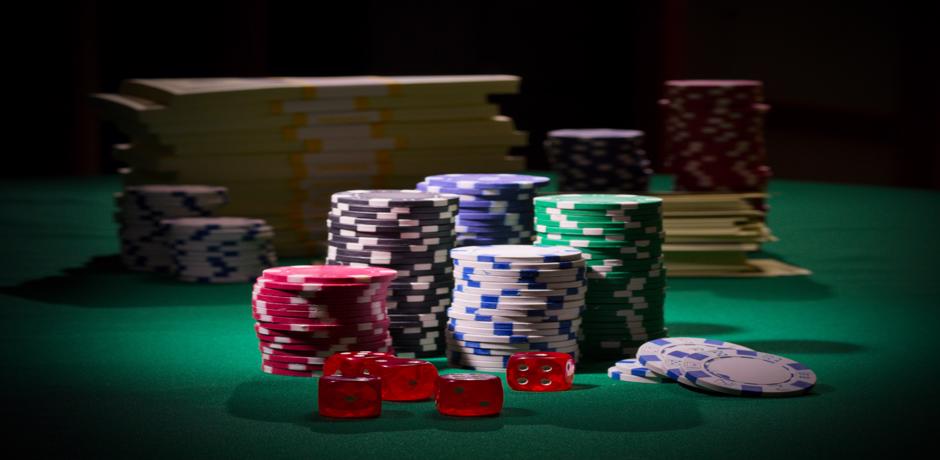Texas Holdem Terms And Definitions
A Texas Hold’em tournament is the same as any other game of Hold’em with a few added rules and twists. Learn more about the unique rules of Texas Holdem poker tournaments. Meanwhile, a Texas Holdem cash game is played on a single table with 2 to 10 players. We hope you find this glossary of poker terms and meanings useful. Now, go talk the talk as you walk the poker walk. Published 22 Oct 2018, 00:40 IST. Texas Holdem Poker. Texas Hold'em Terms and Rules. In Hold 'em, blinds take the place of the classic 'ante.' Nickname for the player acting as the dealer in current hand.
Sitting down to play Texas Hold’em for the first time can be a bewildering experience, what with players casually talking about spiking a double belly-buster to sink a sucker’s set. Unless you know the lingo, learning the game may be slow going, so take the time to study this comprehensive glossary of common Texas Hold’em terms before you move on to rules and strategy.

All-In – The trademark declaration of No-Limit Texas Hold’em, all-in is the phrase used by a player to signal that they are wagering all of their chips. You may also put an opponent all-in by betting enough to cover their entire stack should they commit to calling. Any hand of Hold’em can instantly become an emotional roller coaster the moment you put yourself all-in.
Ante – In tournament Hold’em, these are an escalating series of forced bets that each player must make before every hand. Typically the ante stage of a tournament begins after six blind levels have passed. Antes increase the size of pots before the cards have even been dealt and give aggressive players a reason to steal the blinds.
Blinds – Every hand of Texas Hold’em begins with two players ponying up forced bets before the cards are dealt. Known as the small and big blinds because you are effectively betting without seeing your cards, these positions on the table rotate after every hand, stimulating future betting by giving players a pot to fight over on every single deal. The small blind is always the seat directly left of the dealer button, while the big blind is the next seat to the left, meaning the players on the blinds act first throughout the hand.
Boat – Another name for a full house.
Broadway – The best straight possible, consisting of the 10-J-Q-K-A. Individually, these five cards are also known as Broadway cards.
Burn Card – Whenever the dealer is ready to reveal the next community card, he or she will first discard the top card in the deck face down on the table. By “burning” a card before the flop, turn and river, the dealer assures the rest of the table that everything is on the level, with no stacking of the deck or marked cards.
Button – Typically a circular disk with “Button” emblazoned on each side, this object is used in Texas Hold’em to denote the dealer position on the table. After every hand the dealer button is moved one seat position to the left, which moves the blinds and facilitates the forced betting fairly.
Call – Deciding to equal a bet made by another player to remain in the hand.
Check – When the action comes to a player and they elect to pass without betting any chips. You may verbally say check, or simply tap the table with your knuckles, to pass the action along without parting with any of your hard earned money.
Check-Raise – A raise which comes after you have checked to your opponent and they have bet into you. The cornerstone of every poker game is deception, and in Texas Hold’em the most basic act of trickery is the check-raise. When you check and passively invite your opponent to bet, only to respond with an immediate raise, the check-raise can chip away at their stack in short order.

Chop – A chop occurs when the action folds all the way around the table leaving only the small and big blinds, and both players elect to take their money back rather than play a paltry pot and surrender half of it to the rake.
Chopped Pot – A draw or tie during the showdown. If the remaining players turn over the same hand, such as a pair of jacks with an ace kicker, the pot is chopped up, or split into even portions and distributed.
Counterfeited – The unfortunate role reversal which can occur when the board cards nullify certain cards in your hand. A common example of a hand being counterfeited is when a player flops bottom two pair, say the 3-5 on a 3-5-10 flop, and the turn or river brings a second Ten to the board. The resulting pair of Tens shared by both players extinguishes the strength of bottom two pair, giving the lead to anybody with a pocket pair in the hole.
Door Card – Also known as the card in the window, this is the first card player’s see as the dealer is spreading the flop. Most casino dealers reveal the flop with a flourish, pausing with the door card tantalizingly exposed before rapidly flashing the rest of the flop across the table.
Double Belly-Buster – A straight draw in which you need to hit any of two unconnected cards to complete your hand. If you have 7-8 in the hole and the flop has fallen 4-6-10, you now need any 5 or Ten to make a straight, thus you hold a double belly-buster straight draw.
Flat(call) – A modern take on a classic idiom, the word flat is used by younger poker players to denote a smooth call. The term is a bit superfluous, as there is no other way to call but to flat call, but you will invariably hear players mention that they “flatted” on the flop when recounting a recent hand.
Flop – The first three community cards revealed to the table simultaneously. The flop comes after the opening betting round and allows players to convert their two hole cards into a five-card poker hand of varying strength.
Fourth and Fifth Street – The fourth and fifth community cards used by all players to form a hand, these are more commonly known as the Turn and River.

Gutshot – A straight draw in which you need to hit precisely one card to complete your hand. If you have 7-8 in the hole and the flop has fallen 4-5-K, you now need any 6 to make a straight, thus you hold a gutshot straight draw.
Hole Cards – Every hand of Texas Hold’em begins with the dealer distributing two cards face down to each player. The cards you hold “in the hole” are yours and yours alone, which means you should always protect them from prying eyes. Hole cards can form a total of 169 nonequivalent starting hands, ranging from the lowly 2♥ 7♣ offsuit to the almighty A♠A♦, or pocket aces, and knowing which of these to hold and which to fold forms the foundation of Texas Hold’em strategy.
Kicker – The tiebreaker used to determine a winner when players in a showdown hold the same pair. For example, if I have the Ace-King and you have the King-Jack, and a King is on board giving us both top pair, my Ace kicker bests your Jack kicker and the pot is shipped in my direction.
Muck – This term can be used as both a noun and a verb. Folding your hand is also known as mucking, while the pile of folded hands that accumulates during every hand is called the muck. A hand can be declared dead the moment it touches the muck, which is why most players use card protectors to keep their cards safe and sound.
On the Come – Betting in a situation where you are still drawing to make a hand. When you need the right card to come in order to complete a straight, flush or full house, and still decide to push the envelope with a bet or raise, you’re doing so on the come.
Open-Ended – A straight draw in which you have four consecutive cards and need to hit either end to complete your hand. If you have 7-8 in the hole and the flop has fallen 9-10-A, you now need any 6 or any Jack to make a straight, thus you hold an open-ended straight draw.
Paint – A descriptive term for any face card, from Jack through King, which stems from the distinctive portrait-like appearance of these cards in most decks.
Pot – Used as a verb, as in “I’ll pot it,” this word is a fixture of Pot-Limit Hold’em, a game in which the maximum allowable bet is the current size of the pot.
Preflop – Any action that occurs before the flop has been dealt. Basically, the betting and folding to take place after you receive your hole cards, but before you see the flop, is known as the preflop stage of a hand.
Nuts – The best possible cards at any given moment in a hand. Pocket Aces is the nuts preflop, while the 10♥J♥Q♥K♥A♥ Royal Flush is the ultimate nuts. The ace-high flush is the nut flush, the Broadway straight is the nut straight, and the simple ace-high is sarcastically called the nut nothing.
Rake – The house fee taken from each cash game pot or tournament buy-in by the casino staff or home game operator. Because every single hand results in a few chips being pocketed by the casino cage, grizzled poker vets know that it takes talent just to beat the rake.
Rags – A derisive epithet for any traditionally inferior starting hand consisting of unconnected, low cards.
River – The fifth and final community card to be revealed. Fortunes can be won and lost on the river, as this conclusive card completes the board and leaves players with their final hand before the showdown.
Set – Fortuitously forming three of a kind while holding a pocket pair is known in Texas Hold’em as hitting your set. A set of deuces is much stronger than a pair of aces, and anytime you spike a set it’s a cause for celebration, but the hand’s real strength comes from its propensity for turning into a powerful full house.
Showdown – When the flop, turn and river have been exposed and the final betting round has occurred, the players still holding cards confront one another to determine the pot’s winner. All hands are not always turned over at the showdown, as a losing player may elect to muck his meek holding rather than let the competition see the goods.
Texas Hold'em Terms And Definitions
Suckout – Anytime the statistically inferior hand catches up to best a made hand. Players will complain like clockwork about the brutal suckouts they suffer through, and you will soon learn to dread suckout artists who seem to catch every card they need.
Suited – Whenever you hold two hole cards of the same suit, your hand is said to be suited. Suited hands like 6♣7♣ are perceived to be slightly more valuable than their unsuited counterparts, because the possibility of making a flush is improved.
Texas Hold'em Poker Terms And Definitions
Turn – The fourth community card to be revealed. The turn card comes after the flop and before the river, meaning it can be a pivotal point in any hand.